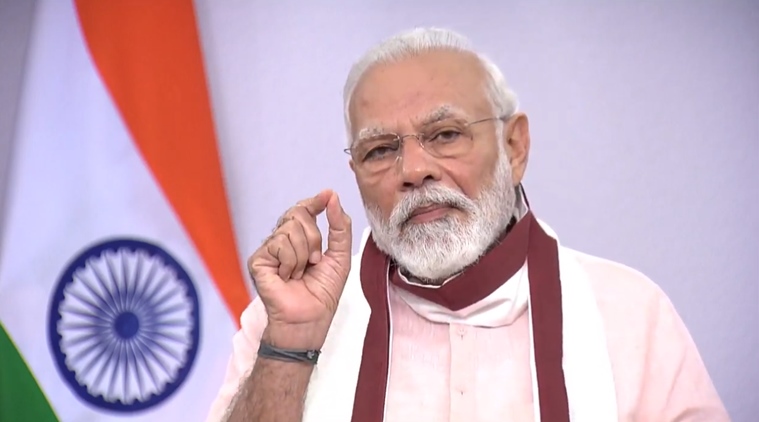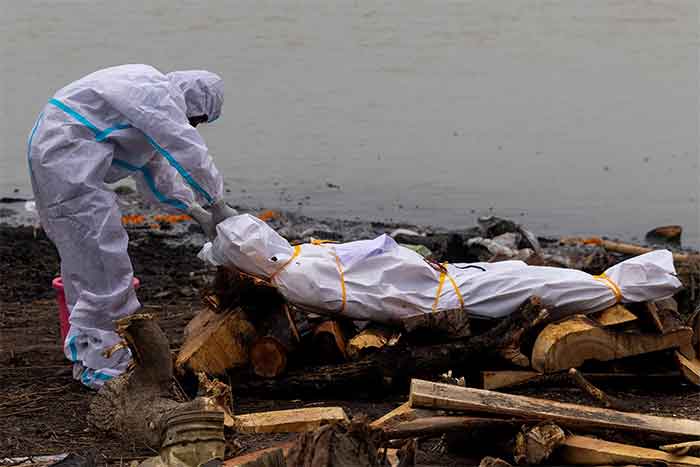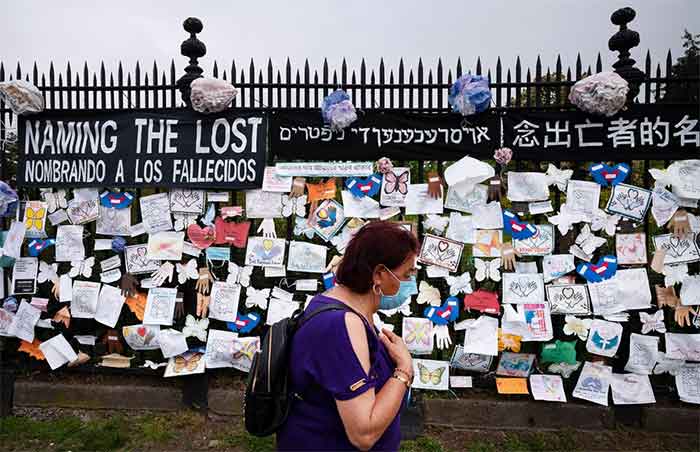
After dithering on two previous occasions, when Narenda Modi addressed the people of this country with pious speeches, when he spoke not of the steps government he heads needed to take to build a suitable response against the looming coronavirus epidemic (he suggested a clamour of pots and thalis on the first occasion and lighting a diya or a torch for nine minutes on the second) he finally gave an impressive number of Rs 20 trillion (20 followed by 12 zeros) to be spent by the country during his address to the nation last week.
The Rs20 trillion may have fulfilled numerology calculations but was a gross exaggeration in terms of what was really needed. Less than 2 percent of the sum was spent directly in giving food to the suffering people who were dying of hunger after losing their jobs or were dying while making a desperate journey over hundreds of kilometers to their homes in faraway states. Only Rs3,500 crore was provided for migrant workers food. Out of the Rs3.26 trillion (lakh crore) announced by the finance minister on May14, the rest was on credit linked subsidy schemes, that would make it easier for small shopkeepers, farmers or workers to repay loans over many months they would be given to improve their lot. This would not be to help them get over their immediate survival.
The BJP government at the centre has shown in its response to coronavirus epidemic a tendency to further depress the already harried and exploited worker. Uttar Pradesh, Madhya Pradesh, and Gujarat, all of them BJP ruled states, have announced that they plan to amend the Factories Act to allow industrial establishments to allow them to employ workers in 12hour shifts instead of the eight hour shift allowed till now. Moreover they will be paid the same amount for the longer shift than for the shorter one, and will not have a canteen or any of the hard won rights they do at present. Industry associations have backed these demands. It is clear that this step been backed by the central government and represents a change in policy.
This would mean a change in how the people now forced to leave their slums in the cities and make a painful journey over hundreds of kilometers to their villages are being seen. It is no longer merely a matter of incompetence in the way the health crisis has been handled and the way millions of people working in the cities face possible starvation as they return to their villages. The authorities inflicted needless duress, indignity on millions of workers by refusing to provide adequate social support and “artificially create a mass army of reserve labour, barely on the brink of subsistence, so they have no option but to work on any terms that are offered.”
The right wing government saw the corona virus danger as opening an opportunity as western companies prepare to downsize their investment in China. Though investment is likely to move out of a country that had become the backstage factory of the world any economist or administrator with a knowledge of the world economy would realise that productive investment would rather move to countries like Vietnam, Thailand and even Bangladesh than go to states in India they have avoided all this time. Further the starvation of people making the reverse migration back to the backward regions where their villages lie changes the possibilities of the way ahead.
Many of those who made the journey back are unlikely to return to the cities which had ejected them. If we remember that the cities were formed when men couldn’t get opportunity get work in the villages, faced hunger and oppression there and saw an escape to the urban environment as being better than the cloistered village like existence, a journey back to the cities is complicated. Now the situation has reversed, the hunger has moved to the cities and the possibility of gainful employment moved to the villages. There is no indication of how the urban/rural people are to face the challenges. It is not enough to have investment planned to increase output of foodgrains or even of milk, vegetables and fruit. The return of the urban diaspora will bring knowledge, new skills and ways of looking at the world. The incompetence and insensitivity of the governments in handling the migration back are obvious to those who suffered them.
It isn’t as if agricultural life isn’t without problems. Farmers have seen their output of perishables rotting in the fields because they could not move it. Crops from the rabi harvest cannot be moved for sale to the mandis. The planting of the kharif crop faces a shortage of labour. It is difficult to visualise the migrants from cities making a working life in rural India unless use is made of their skills and knowledge. A whole lot of servicing and repair jobs would be needed in rural life. Besides jobs could be created in industry tied to agriculture such as cold storages, canning fruits to make them more marketable, and repairing trucks and other vehicles.
There are other ways to create jobs and opportunities. India’s expenditure on health has fallen to 1.2 per cent of GDP, while we need to spend four times as much. We could borrow from the successful Kerala model and build primary health centres (one for every thousand people),full fledged hospitals (one for every million people) with surgical wards and specialized treatment for pandemic and infectious diseases. Many of those returning can be trained to work there.
Others could fit into an education programme. Schools could be expanded so that each school has six to eight teachers instead of just one or two at present. Again, trained people would be required, and these could be gathered from the returning migrants, providing them a chance for a new life.
All this would need a drastic new policy, something the present power structure is unlikely to adopt, considering it is pursuing symbolic actions steeped in superstition rather taking a scientific and rational view of things.
Yogi Aggarwal is a veteran journalist
SIGN UP FOR COUNTERCURRENTS DAILY NEWS LETTER














































